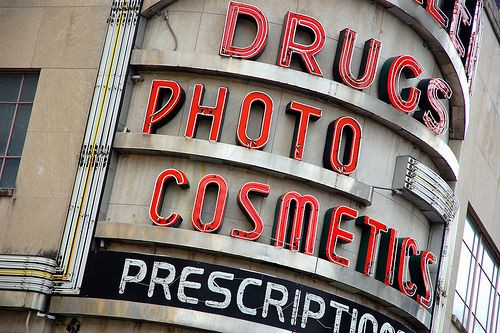Most Drug Commercials False Or Misleading: Erectile Dysfunction Drugs Deemed ‘Repeat Offenders’

When the allergy medicine Claritin moved from being a prescription drug to an over-the-counter remedy, Adrienne Faerber became skeptical of the new commercials. They now made “six time more claims for the benefits of the drug,” according to Faerber — an impossible improvement for no apparent change. This skepticism eventually led her to conduct a study on drug commercials across several major television networks, and soon conclude that most spouted misleading or downright false claims.
What’s In A Lie?
Faerber, who works as a CMM Program Fellow at the Dartmouth Institute for Health Policy & Clinical Practice, collaborated with researchers at the University of Wisconsin-Madison to examine how true major drug companies’ commercials really were. The researchers tracked the ads across CBS, NBC, CNN, and ABC during each network’s nightly news broadcasts, between 2008 and 2010. Of the 84 commercials in their study, the team found 55 percent of prescription drug commercials and 61 percent of over-the-counter drugs (OTC) were false or otherwise misleading.
While blatant lies did populate the study, “half-truths [formed] more than half of our analysis,” Faerber said.
Commercials were evaluated based on the claims they made. The team segregated them into three categories: objectively true, misleading, or false. Commercials that were deemed objectively true didn’t leave out any details about the drug’s side effects, didn’t exaggerate, and showed sufficient evidence to support the drug’s claims. “Misleading” commercials exaggerated the effects and left out details; “false” commercials showed no evidence to back up the claims.
Out of the dozens of commercials they analyzed, Faerber and her colleagues found erectile dysfunction to carry the most misinformation.
“The various drug companies phrase it differently, but they all play on the idea of being ‘ready’ when the moment is right,” Faerber said, noting that “readiness” is less a total physical reaction and more a mix of physical and emotional. “They implied more than a physiological response,” she said.
The organization in charge of overseeing these ads is the U.S. Food and Drug Administration (FDA), which says it welcomes consumer feedback when people see commercials they believe to be misleading or false.
“The FDA encourages everyone to watch and let the FDA know if they see misleading or unbalanced prescription drug promotion,” FDA spokesperson, Andrea Fischer, told Inside Science. When a drug company wants to air a commercial for their new prescription drug, at the time it first goes public, the FDA conducts “thorough surveillance” of “all advertisements and other promotional materials.”
Ultimately, this means drug companies don’t need permission before they run an ad, and they don't need to fear the FDA blocking the ad before it airs. The only way an ad gets changed is after it has launched, if the FDA or consumers report an error in the company’s claims. The antifungal cream, Naftin, for example, misreported the drug’s side effects according to the FDA, including only half the adverse side effects in its ads than were actually found. The FDA sent a letter dated July 31, 2013 to Naftin’s manufacturer, Merz Pharmaceuticals, ordering the change.
As of the time of this article, Naftin’s website has yet to update the FDA’s concerns.
Curbing An Issue
The larger problem for Faerber, however, is that prescription drugs aren’t held to the same standards as OTC medications, which fall under the jurisdiction not of the FDA, but of the Federal Trade Commission (FTC). Faerber argues it’s for this reason that her study found OTC drug ads carry a greater chance to be misleading than prescription drugs.
“The FTC is more reactive and the FDA is proactive,” she said, adding that because “the FTC is also less specialized,” it would be in both groups’ best interest to coordinate their efforts in the first few months that a drug is declassified for OTC sale.
As it turns out, the sentiment still holds true — honest is the best policy for drug companies — but not necessarily for the more virtuous reasons. One recent study found consumers tend to buy more drugs when the ads selling them list more side effects. People attribute the longer list not to increased health risks, but to greater transparency, which builds feelings of trust.
So in reality, when drug companies omit side effects from their commercials, they’re only hurting themselves. And if it’s any of Merz Pharmaceuticals’ concern, people with athlete’s foot may come running if they knew of the real side effects.
Source: Faerber A, Kreling D. Content Analysis of False and Misleading Claims in Television Advertising for Prescription and Nonprescription Drugs. Journal of General Internal Medicine. 2013.
Published by Medicaldaily.com



























